The best foods for a healthy vagina, according to the experts
The top foods for a healthy vagina are delicious too!
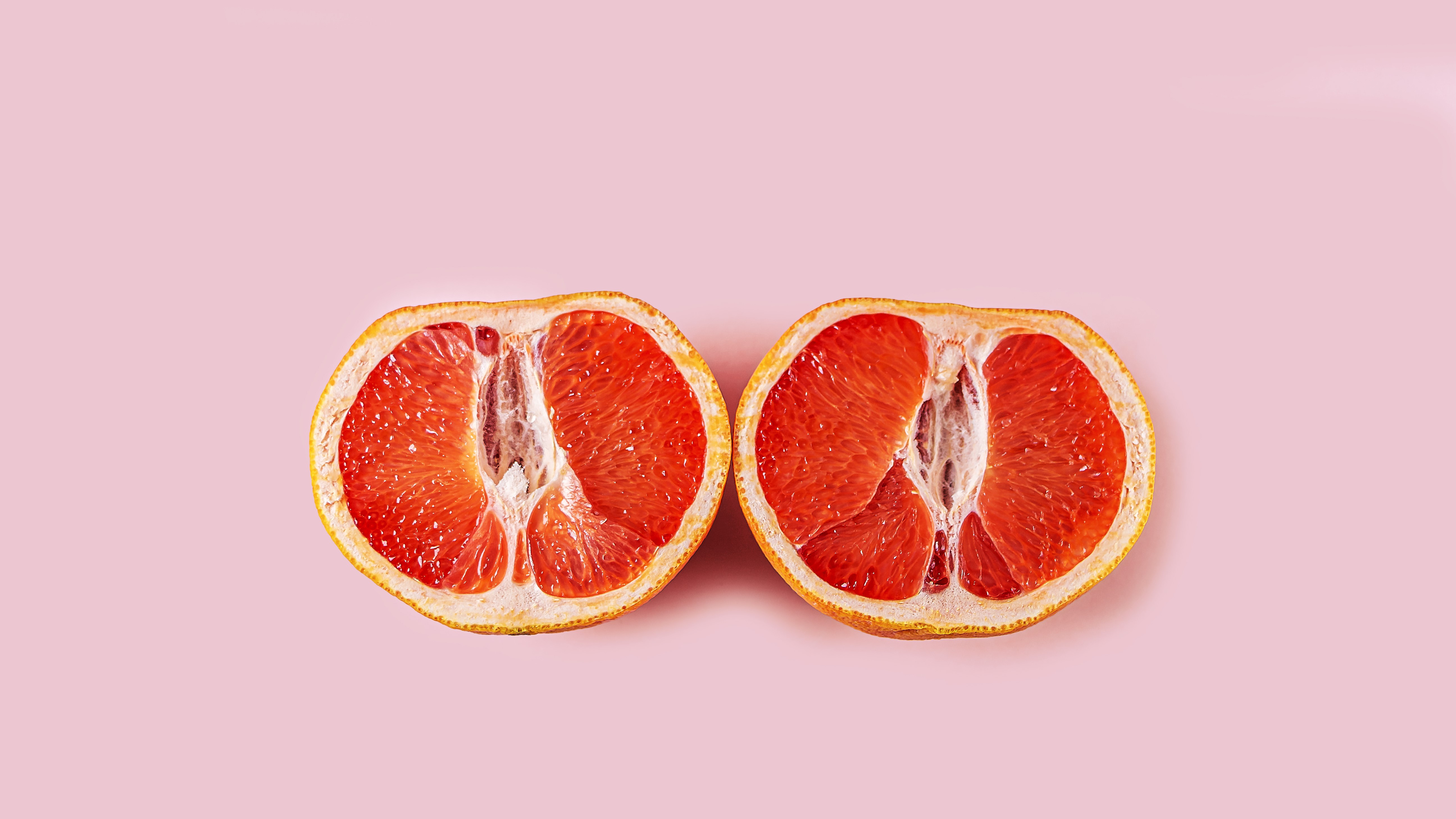

From boosting libido to reducing cramps, what you put on your plate can directly benefit vaginal health. Here are the best types of foods for a healthy vagina.
What we eat can affect our skin health, how tired we feel and the quality of our sleep, so it stands to reason that our diet can also affect our vaginal health in many different ways.
When Googling ‘How to tell if something is wrong down there?’ and considering the link between gut health and pelvic health—that’s everything below the belt—the words ‘microbiome’ and ‘bacteria’ will often make an appearance. Just like the gut, a healthy vagina is characterized by a slightly acidic environment with a ph of around 3.5-4.5 that supports helpful microbes and bacteria.
Eating a wide array of different whole foods is the best way to keep your gut and your vagina healthy. “Healthy bugs and bacteria thrive off a diverse diet and especially love prebiotic and probiotic foods,” GP Dr. Ruth Cammish tells us. “These bugs have various functions; from helping us control blood sugar, produce vitamins and hormones like melatonin for better sleep to estrogen which is an essential part of our periods, metabolism and bones. It’s not just our bowels that have a microbiome. Our lungs, skin and vagina do too.”
So, what are the best foods to keep you happy and healthy from the waist down? We asked the experts.
The best foods for a healthy vagina
1. Dark chocolate
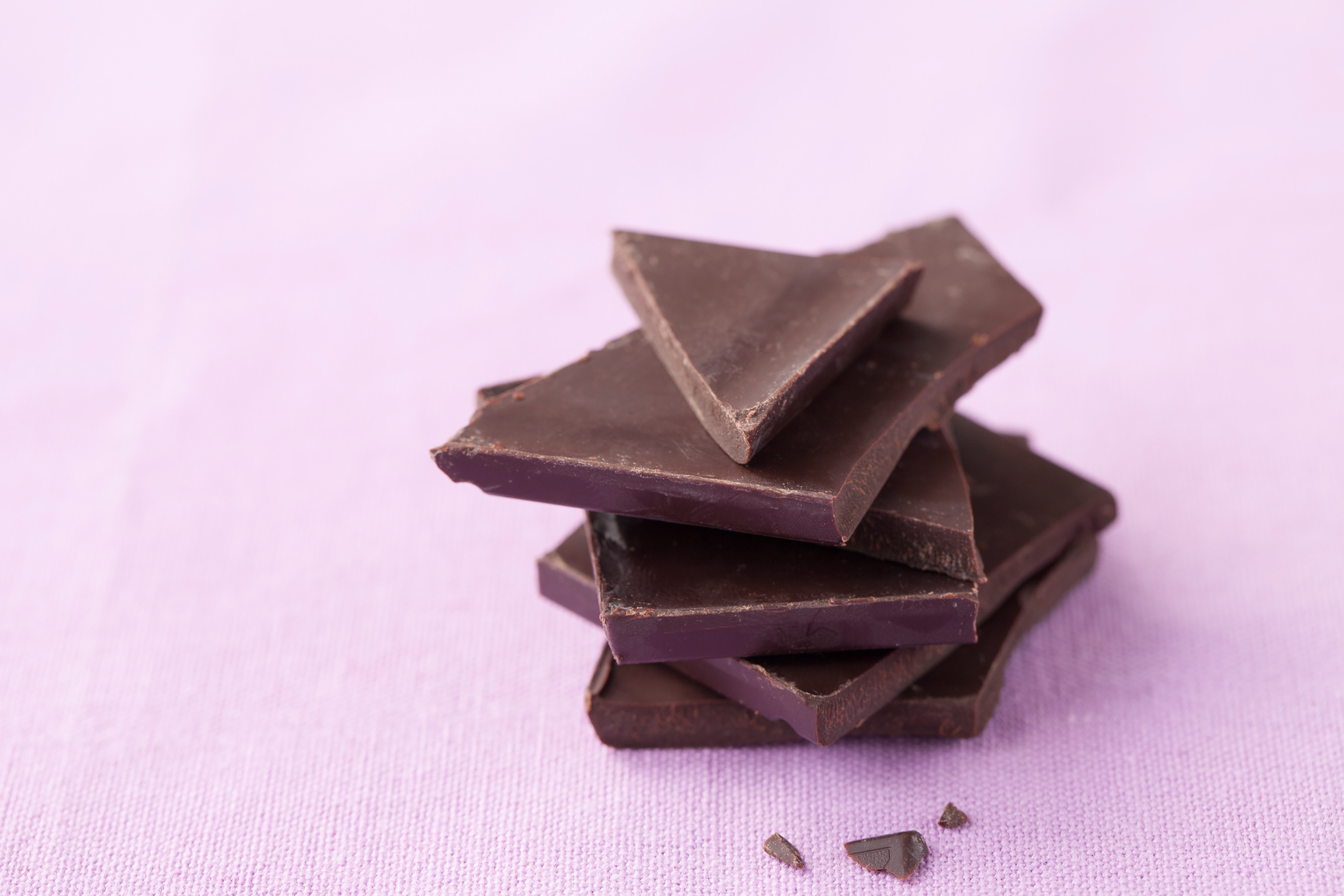
Love a sweet treat? We’ve got good news—your favorite chocolate bar could be doing more good than you realize. “Dark chocolate is high in magnesium, which is highly effective at relaxing muscles—perfect if you suffer from painful period cramps,” says Stephanie Taylor, pelvic health expert and Managing Director of Kegel8. “It can also help your body produce more serotonin, the mood-boosting hormone, alleviating mood swings and irritability.”
“When our blood sugars become elevated, we can become deficient in magnesium,” says nutrition expert, Pauline Cox. “Magnesium is an important mineral for balancing the hormones and improving insulin resistance.” Insulin resistance (or metabolic syndrome as it’s also known) can cause high blood pressure, high cholesterol, obesity and Type 2 diabetes. So a magnesium-rich diet not only helps with relaxing muscles but can help bring down blood pressure.
Sign up to our free daily email for the latest royal and entertainment news, interesting opinion, expert advice on styling and beauty trends, and no-nonsense guides to the health and wellness questions you want answered.
2. Cranberries
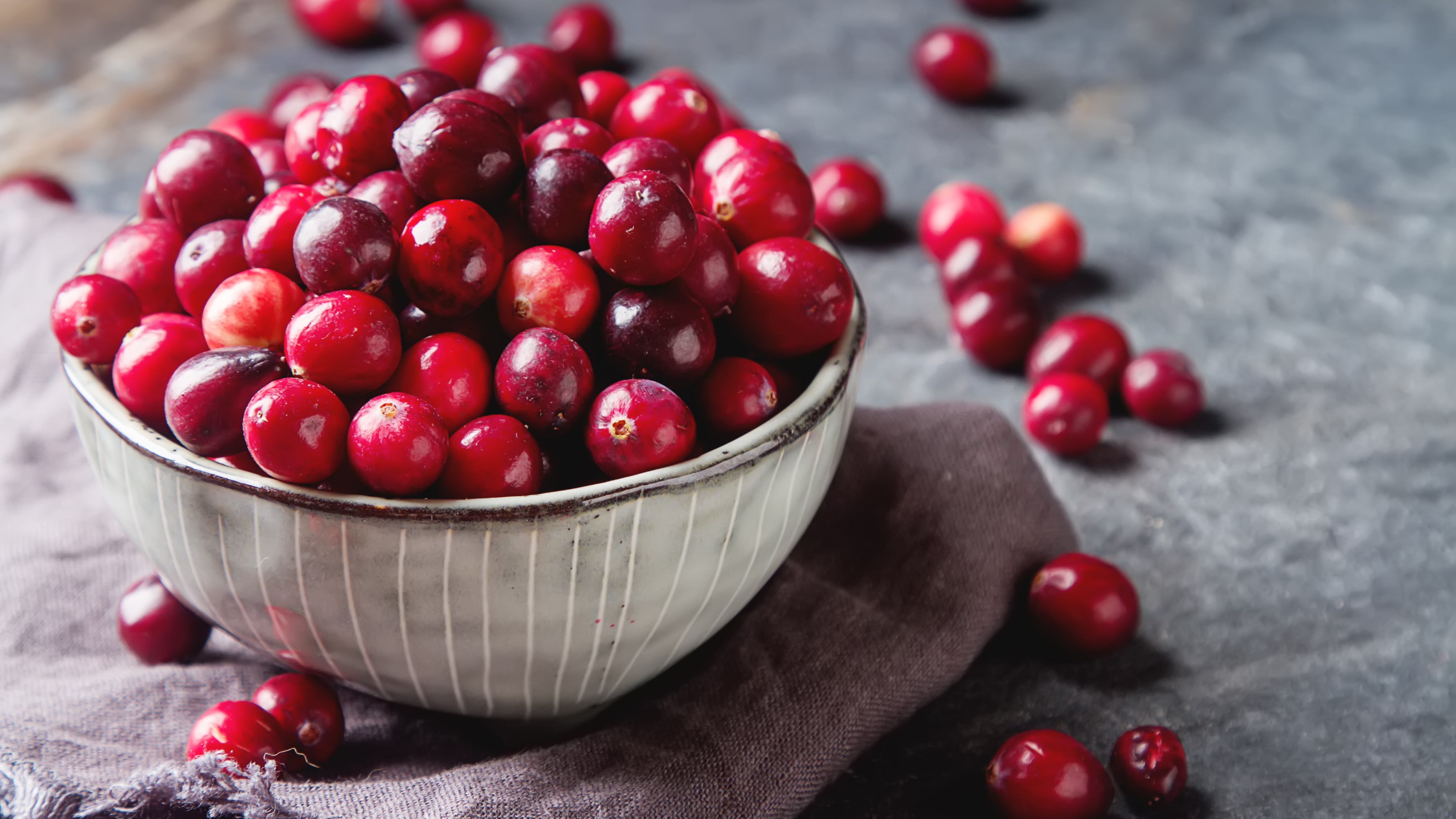
Anyone who’s ever had a urinary tract infection (UTI) knows just how painful, uncomfortable and frustrating they can be. Up to 60% of women may experience symptoms from urinary tract infections, which occur when bacteria enter the urethra, bladder or kidneys. Want to lower your risk of a future bout? Try snacking on cranberries. “Cranberries are rich in PACs or A-type proanthocyanidins, which help prevent urinary tract infections by preventing bacteria from sticking to the bladder wall,” says Stephanie. “While cranberries can’t treat UTIs, some studies have found that they can help prevent UTIs in women who are more susceptible to these infections. Go for the real deal and eat whole cranberries, rather than juice which is often high in sugar.”
Citrus juices and berries which are rich in antioxidants and Vitamin C can also help. Their antibacterial properties not only help to stave off harmful bacteria but antioxidants also promote healthy cell turnover and good immune function.
3. Leafy Greens
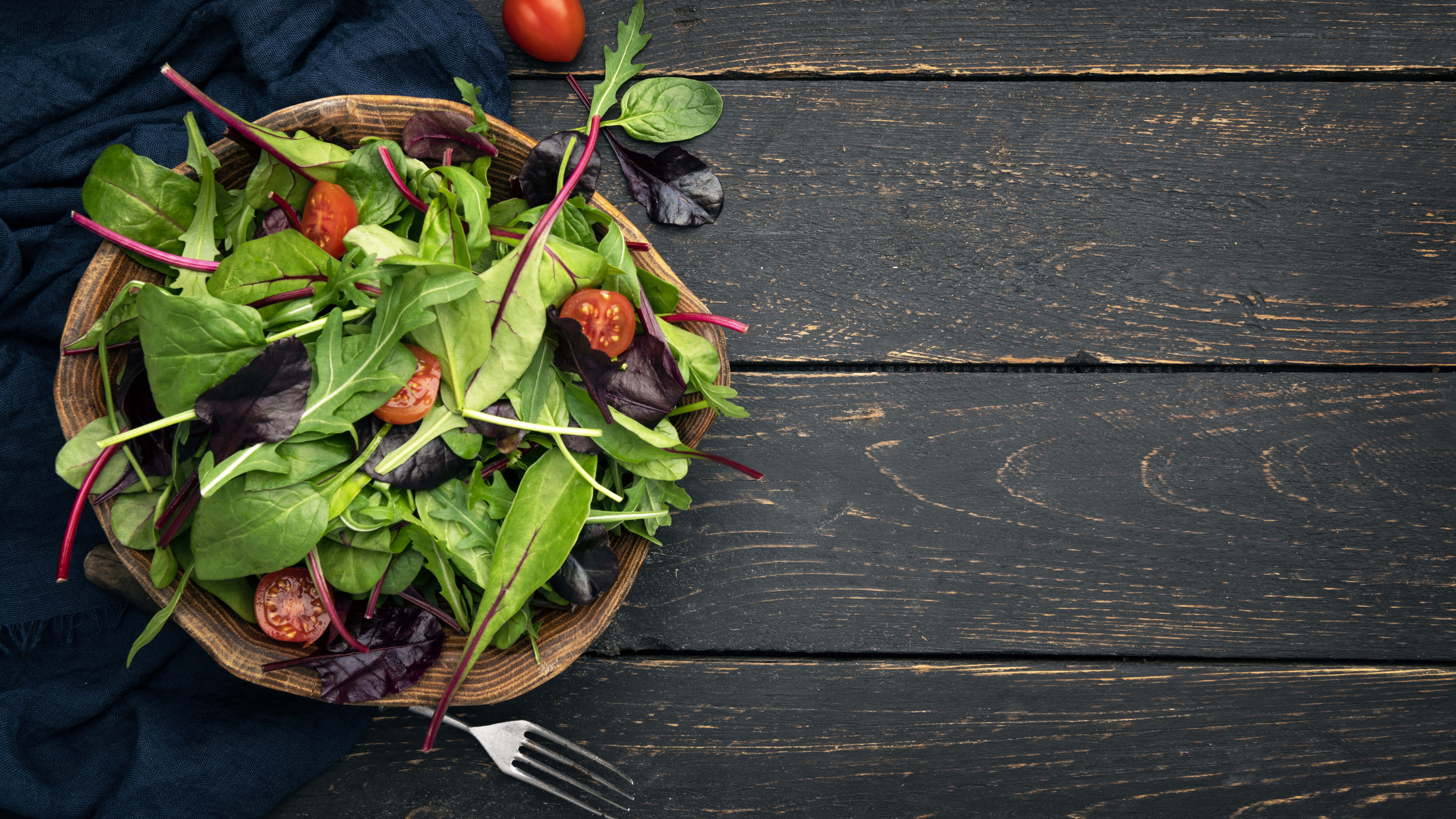
Were you always told as a child to eat your greens? If you didn’t listen to the advice then, it’s essential you listen now. “Leafy greens like spinach, kale and lettuce are all-round health boosters,” says Stephanie. “They’re naturally high in nitrates, which the body converts into nitric oxide. This chemical dilates blood vessels and improves circulation, including to the vaginal area, helping to keep dryness at bay and contributing to stronger and more frequent orgasms.”
Leafy greens are also rich in vitamin E, magnesium, and calcium, all of which are beneficial to muscle health, including vaginal muscles. Collard greens and chard are also great sources of these vitamins and minerals and all green veggies are a good source of folate.
“In the female body, folate plays a critical role in developmental periods during pregnancy,” say the gut health experts at Seed. “Women are routinely recommended to fortify their bodies with folate, typically through nutrition-rich foods like leafy greens, avocados, and citrus fruits, or in the form of folic acid, via supplements.”
High-fiber greens such as kale and chard will also help to stave off any gastrointestinal issues and will make emptying your bowels easier. This will help prevent painful stomach issues during your period and make things easier for your pelvic floor muscles, which can become tight, cramped or damaged if you’re straining when you go to the bathroom. Kegel exercises will also help to keep your pelvic floor healthy and can improve your orgasms too.
4. Oily fish
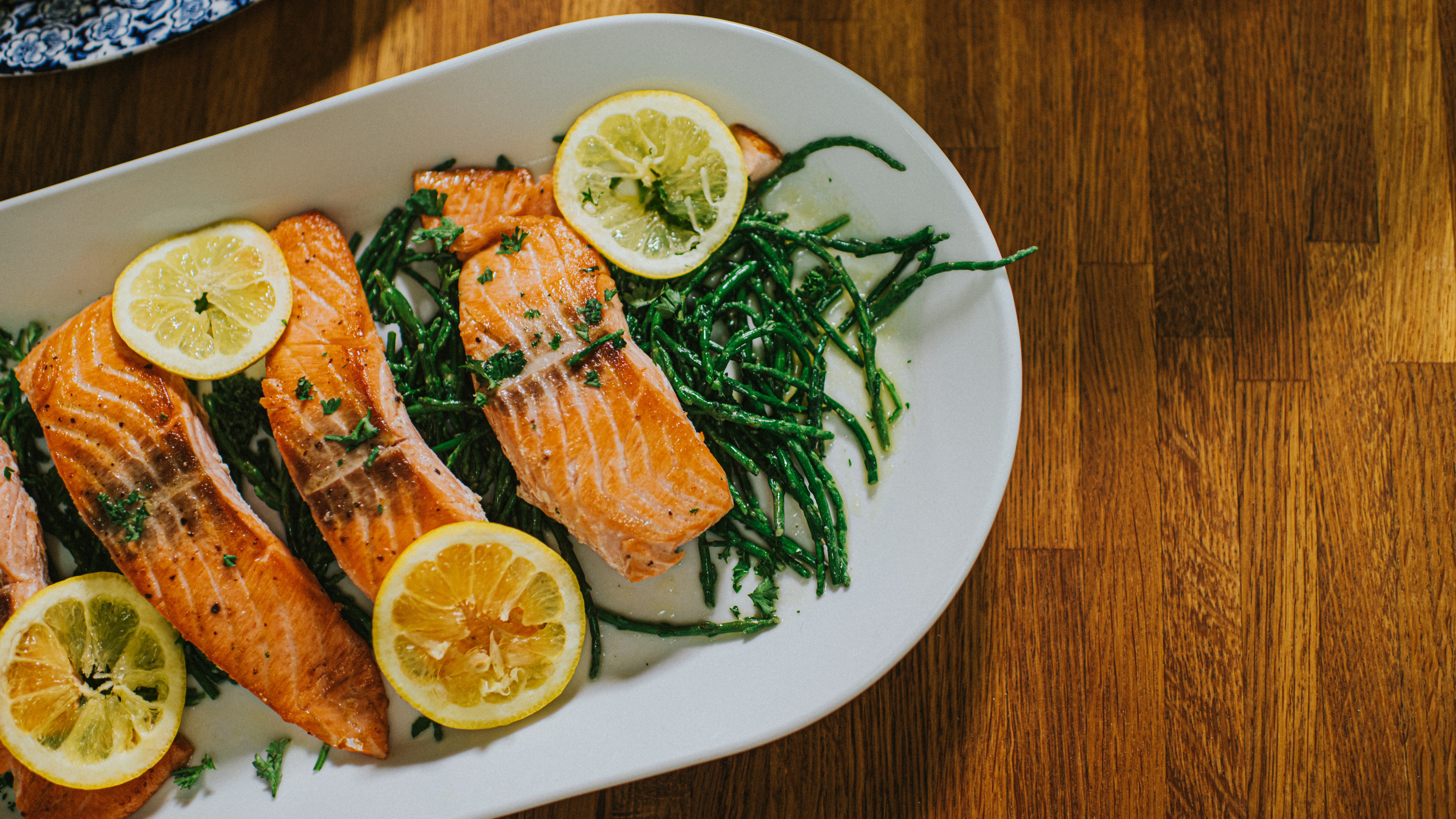
“Healthy fats, particularly omega-3 fatty acids found in oily fish and omega-7 supplements play a crucial role in our overall health, however, they are particularly important for our hormonal health,” says Pauline. “Healthy fats are the building block from which our sex hormones are made, a low-fat diet can lead to low levels of our sex hormones.
Oily fish include mackerel, salmon, trout, sardines, herring and tuna. Each of these fish contains healthy fats whether fresh, frozen or from a can. However, if you don’t enjoy the taste of fish, an easy and efficient way of consuming your daily dose of anti-inflammatory omega-3s and lubricating omega-7s is to supplement with a high-quality, potent and sustainably sourced fish oil.
“Omega-3 fatty acids also help with circulation and blood flow, which helps to improve libido,” says Dr. ZahraAmeen. “These essential fatty acids, as well as others found in sea buckthorn oil, like palmitoleic, linoleic, oleic and palmitic acids, were shown in a 2014 study to help with vaginal dryness in postmenopausal women. Studies have also shown that fish oil can ease severe dysmenorrhea, severe pain during periods.”
5. Avocados
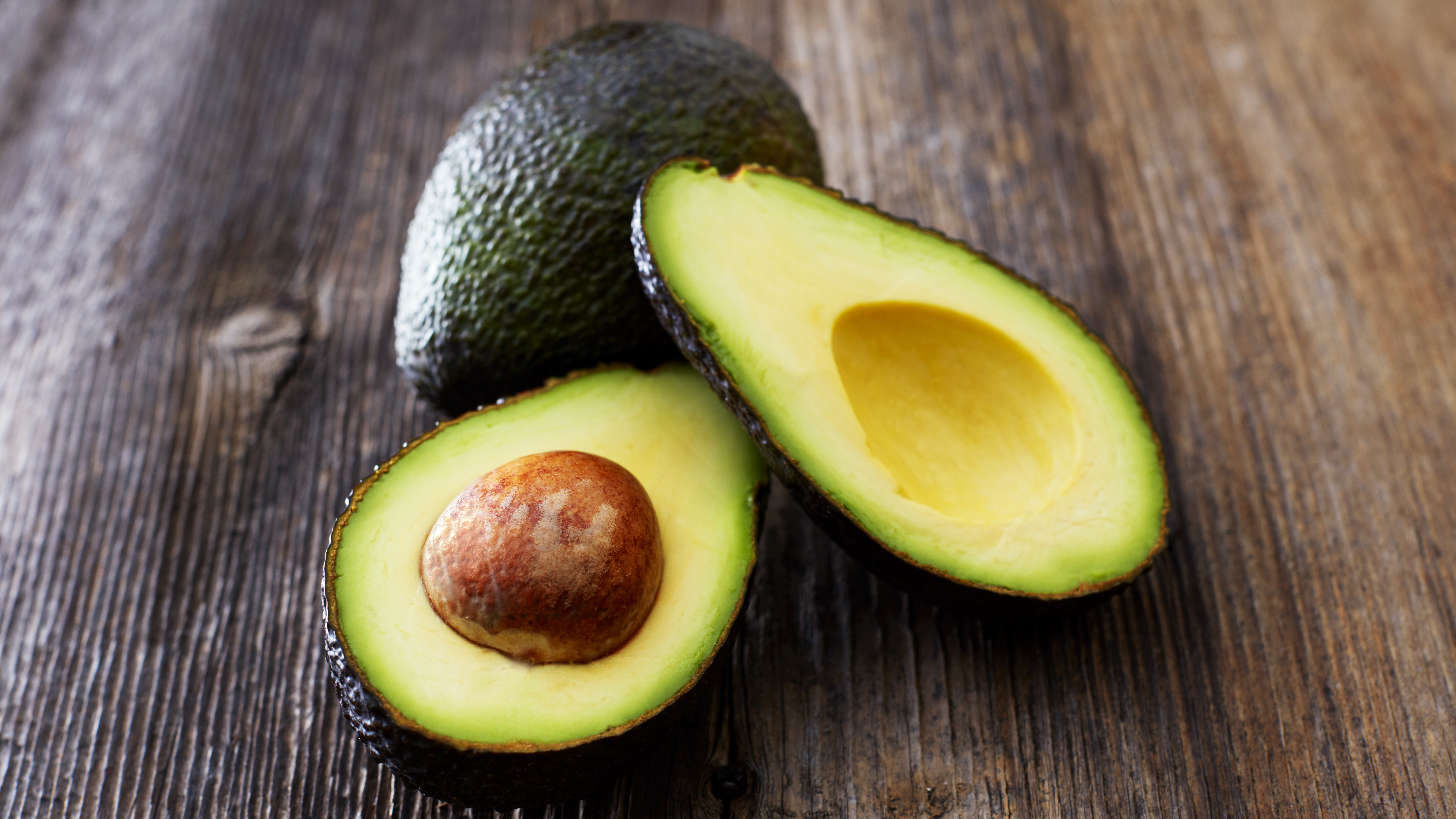
Not only are avocados great for inducing food envy on social media, but an avo-addiction is also ideal for keeping your vagina healthy. “They’re packed full of healthy fats, vitamin B6 and potassium, all of which have positive effects on your libido and support the vagina’s natural ability to take care of itself,” says Stephanie. “Just a quarter of an avocado a day is enough to reap the benefits. Try yours sliced in a sandwich, added to your morning smoothie or as a side to any meal with a squeeze of lime and sprinkling of chili.”
Avocados aren’t the only fruit that can help with libido. “Apples contain phytoestrogens which can help with vaginal lubrication and stimulation of blood flow in the vagina. This improves sexual function and arousal,” adds Dr. Zahra Ameen.
6. Fermented food
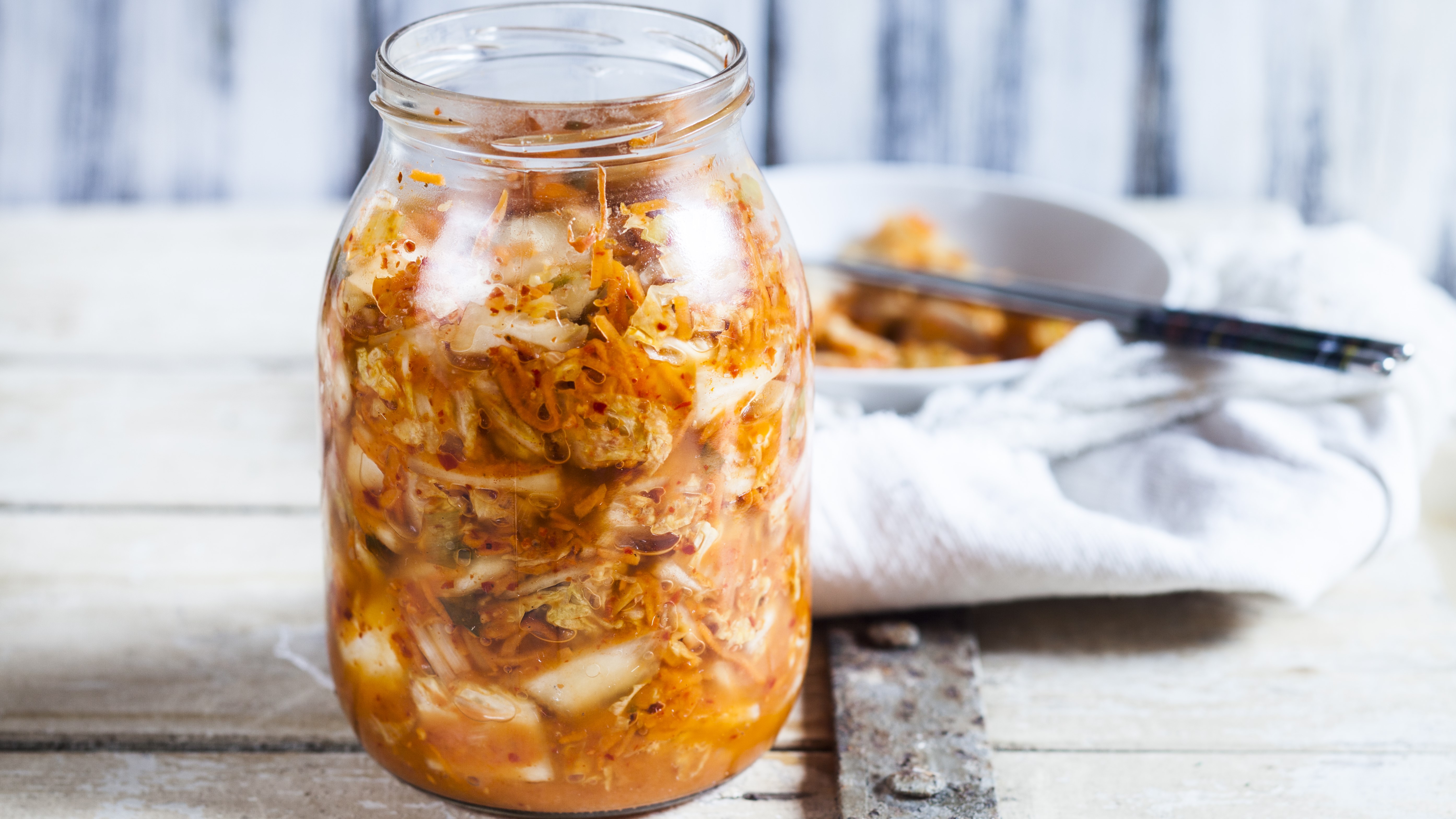
If you struggle with a recurring case of Bacterial Vaginosis, the problem may be in your gut. “Fermented foods such as kimchi, miso, sauerkraut, tempeh, and pickles are bursting with healthy bacteria which can help your gut and vagina maintain natural pH levels,” says Stephanie. “This is essential as the vagina naturally contains good and bad bacteria, which are carefully balanced. If this balance is thrown off, your risk of developing an infection, such as BV, increases.”
“Fermented foods which contain live bacteria are also full of fiber and vitamins,” adds Dr. Cammish. “Look for products which are unpasteurized and are sold chilled, which means it’s more likely they contain those beneficial bugs.” Natural yogurt and kefir are good options containing the same live active cultures as foods like kimchi and for some, are a little easier on the palate.
7. Almonds
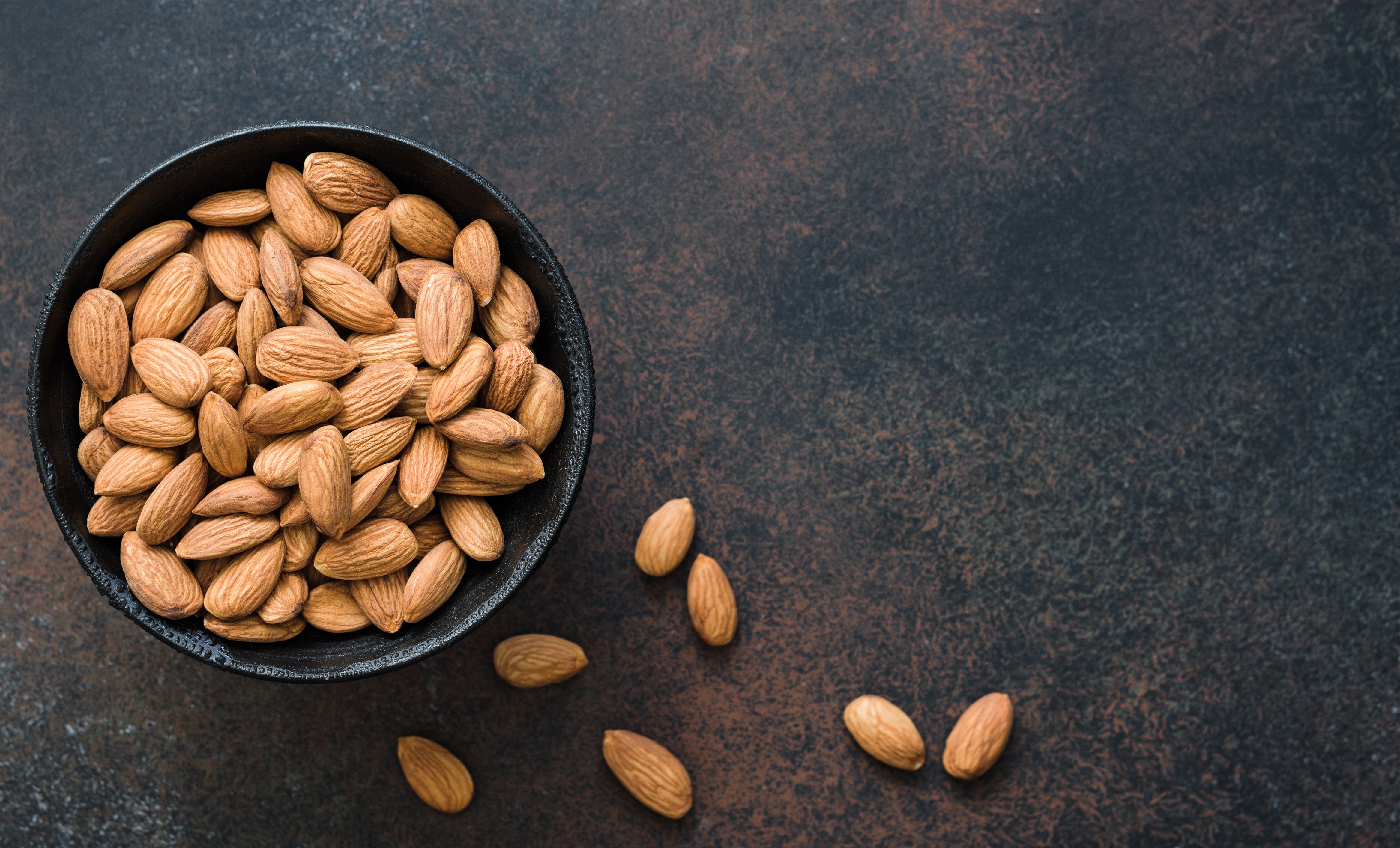
Vaginal dryness is a common symptom of the menopause and one of the most common vagina problems, but your diet can help with encouraging your body to self lubricate and regulate. “Packed full of Vitamin E, almonds can be a savior,” says Stephanie. “Vitamin E oils and moisturizers can cause irritability if applied inside and around your vagina, so instead, make sure your diet contains vitamin-E rich foods like almonds to reduce dryness and keep your sex life healthy.”
If your vulva seems more dry or pale than usual, eating foods rich in Vitamin E can help to reinvigorate the area. If the skin feels so dry and your vagina is sore which can be common during perimenopause and menopause—your doctor might also advise Vitamin E creams and suppositories or almond oil. Always consult with a medical professional before applying anything directly to your vulva or putting anything inside your vagina. Your pH balance is delicate and upsetting it could do more harm than good.
Emilie Lavinia is a writer, entrepreneur and women’s wellbeing advocate. She is passionate about femtech, closing the gender health gap and campaigning for education and transparency across mental, physical and sexual health. Emilie presents All Being Well – a series that investigates the concept of wellness, good health according to experts and what it means to ‘be well’. She has a decade of experience as a journalist, editor and brand strategist and is the founder of four separate organisations that champion women’s health, marginalised communities and LGBTQ+ people.
